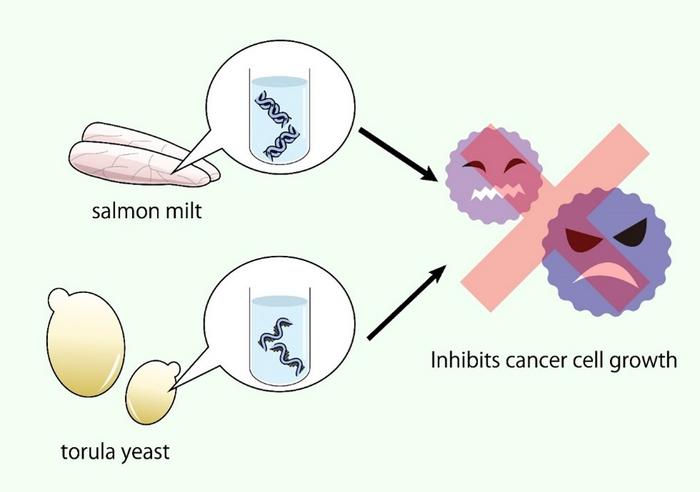When people eat, they ingest the nucleic acids that reside in all living things. The compounds in these acids could inhibit the growth of cancer cells, according to findings published in PLOS ONE by Osaka Metropolitan University Associate Professor Akiko Kojima-Yuasa of the Graduate School of Human Life and Ecology and colleagues.

Credit: Osaka Metropolitan University
When people eat, they ingest the nucleic acids that reside in all living things. The compounds in these acids could inhibit the growth of cancer cells, according to findings published in PLOS ONE by Osaka Metropolitan University Associate Professor Akiko Kojima-Yuasa of the Graduate School of Human Life and Ecology and colleagues.
Consuming nucleic acids found in food has been shown to boost the immune system and prevent some diseases. The nucleotides and nucleosides that result from digesting the acids are largely responsible for these beneficial effects.
Professor Kojima-Yuasa’s team used compounds of nucleic acids derived from salmon milt DNA and torula yeast RNA and showed that chemical compounds like guanosine could prevent the proliferation of certain cancer cells in laboratory rats. The compounds stopped the cells from starting their replication phase.
“Our research provides a new perspective on the physiological functions of nucleic acids derived from food,” Professor Kojima-Yuasa explained. “We hold hope that this will be a crucial step toward cancer prevention.”
###
About OMU
Established in Osaka as one of the largest public universities in Japan, Osaka Metropolitan University is committed to shaping the future of society through “Convergence of Knowledge” and the promotion of world-class research. For more research news, visit and follow us on social media: X, Facebook, Instagram, LinkedIn.
Journal
PLoS ONE
Method of Research
Experimental study
Subject of Research
Animals
Article Title
Suppression of Ehrlich ascites tumor cell proliferation via G1 arrest induced by dietary nucleic acid-derived nucleosides
Article Publication Date
18-Jul-2024
COI Statement
A part of the research grant and dietary nucleic acid, hydrolyzed dietary nucleic acid and RNA materials were provided by Fordays Co., Ltd. We declare that these relationships do not affect the results and conclusions of this study. This does not alter on adherence to PLOS ONE politics on sharing data and materials.



